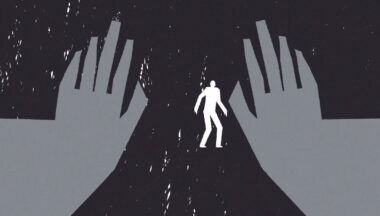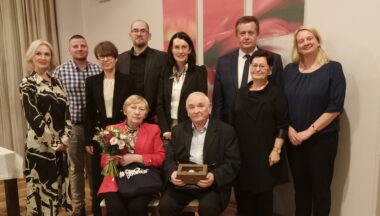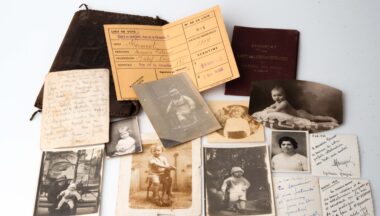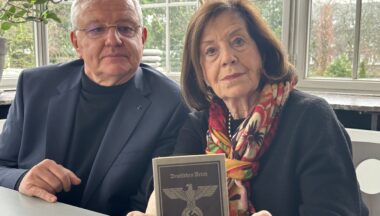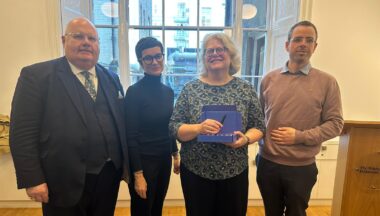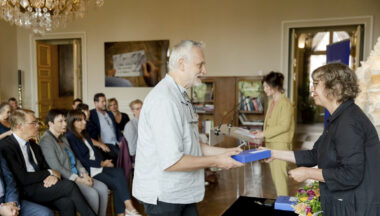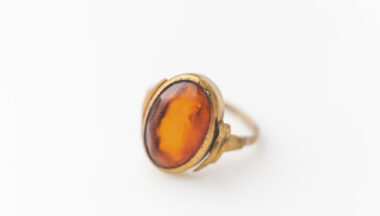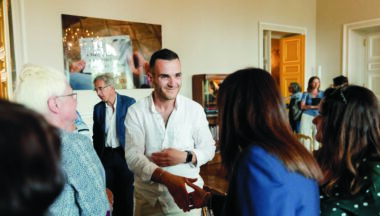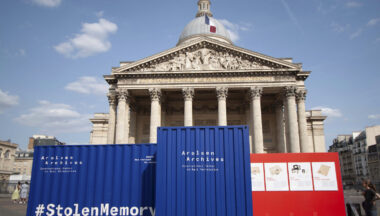New memories: Bracelet returned to great-grandson of Sinti victim of Nazi persecution
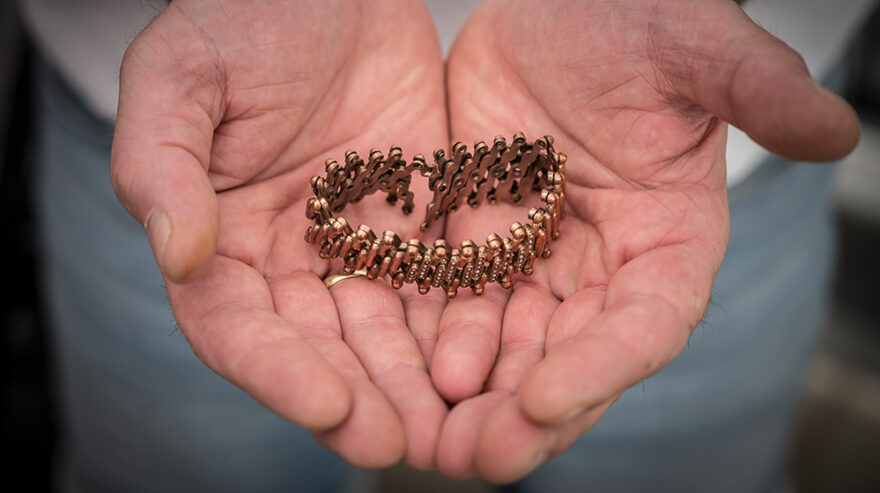
In 1941, the Nazis confiscated a bracelet belonging to Johann Franz, a Sinto held in the Auschwitz concentration camp – it was probably the only thing he had with him at the time. Johann was one of the few members of his family to survive imprisonment in a concentration camp. Eighty-one years later, the Arolsen Archives have now given this piece of jewelry back to his great-grandson Thomas. For him and his family, the return of the bracelet has triggered a whole new process of remembrance.
“If this bracelet could talk! What a lot it must have seen: Johann’s arrest, transport to various camps. But also the life he had before he was detained,” muses Thomas Franz’s wife Yvonne, visibly moved as she holds the piece of jewelry in her hands. For her husband, it is the first time he has heard about his great-grandfather’s fate: “I had never heard anything about him before. We knew that my grandfather Oskar was held in a concentration camp – but I knew nothing about his father, Johann. My grandfather hardly ever spoke about his time in the camp. He didn’t want to burden us.”

Thomas Franz examines his great-grandfather’s bracelet. His uncle Joachim can be seen in the background.
Documents from the Arolsen Archives reveal the family’s fate
Not until the bracelet was returned did the family learn the true extent of the persecution suffered by their relatives during the Nazi era. Charlotte Großmann, our #StolenMemory Project Manager, took copies of documents from the Arolsen Archives along with her when she met the family to return the heirloom. They show that the Nazis did not only deport Johann, his wife Ida, and his son Oskar to Auschwitz, but also eight of Oskar’s siblings. The youngest of them were small children. “Grandpa Oskar never told us that he had so many siblings who were murdered,” explained Thomas Franz.

#StolenMemory Project Manager Charlotte Großmann shows Thomas and Yvonne Franz the documents from the Arolsen Archives about the Franz family.
Futile fight for compensation
Six of Johann’s children were murdered along with their mother Ida in the “Gypsy family camp” at the Auschwitz concentration camp; one of his sons is presumed to have died in the Mittelbau-Dora concentration camp. Only Johann and the two children Oskar and Frieda survived the various camps. After being liberated, they settled in northern Germany and spent long years fighting in vain for compensation after the war. In 2022, after lengthy research, a reference in documents related to these previous compensation proceedings enabled an employee of the Arolsen Archives to trace Johann Franz’s descendants.

The names of Oskar Franz and his brother Josef in the ledger of the “Gypsy camp” in Auschwitz. Josef probably died in the Mittelbau-Dora concentration camp.
How the bracelet came to be in the archive
The return of the bracelet was also a special event in the history of the #StolenMemory campaign. Most Sinti and Roma persecutees were murdered in the extermination camps and their property was liquidated. Johann Franz’s bracelet was only preserved because he was transported from the Auschwitz concentration camp to the Neuengamme concentration camp in March 1943 to work as a forced laborer. The Nazis sent prisoners’ personal belongings along with them on this type of transport. These so-called effects from the Neuengamme concentration camp were recovered by the British Army after the camp was liberated and later ended up in the holdings of the Arolsen Archives.

Johann Franz’s bracelet was one of over 2,500 items belonging to former concentration camp inmates in the holdings of the Arolsen Archives.
“The Nazis took everything away from my family.”
For Thomas Franz, it was a huge surprise to find out that a personal object belonging to his family had survived from the time before their persecution. “It’s a good feeling, and it’s very moving for me now to be able to hold something in my hands that meant something to my great-grandfather, something he owned before his time in the concentration camp. We don’t have anything else from back then. The Nazis took everything away from my family.” The new information he now has about the family’s history would also “close a circle,” he explained. No one in the family had known that the Franz family had lived in East and West Prussia before 1939, for example.

“Type of prisoner – anti-social element; main profession – musician”: Prisoner document (Neuengamme concentration camp) on Johann Franz.
Music runs in the family
In the 1920s and 30s, the Franz family lived in East Prussia and made their living as showmen and performers, as documents from the Arolsen Archives show. Thomas Franz told how some of his relatives were still traveling around with a circus in the 80s. He also found it very moving to read that Johann Franz’s prisoner registration card listed his profession as “musician.” According to Thomas, his grandfather Oskar was very musical too, and everyone in the family plays an instrument. Making music together is very important, especially at big family celebrations.

The photos in the family album often show Grandfather Oskar Franz making music.

